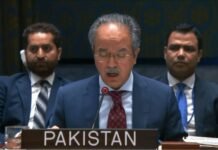Geneva, 24 August 2022 (TDI): United Nations Conference on Trade and Development (UNCTAD) reported that at the beginning of 2022, there were 1,190 known investor-state dispute resolution claims involving over 130 economies.
As in previous years, the majority of the 68 cases reported in 2021 were against developing countries.
The official account of the United Nations Conference on Trade and Development (UNCTAD) shared the findings in a Tweet.
The total number of known investor-state dispute settlement claims was 1,190 at the start of 2022, involving 130+ economies.
Among the 68 new cases in 2021, most of them were brought against developing nations – as in previous years.#UNCTADWIR | https://t.co/OJGOpupzqA pic.twitter.com/IINhC2lDkA
— UNCTAD (@UNCTAD) August 24, 2022
Investor-Dispute Navigator
UNCTAD updated the Investment Dispute Settlement Navigator. As of December 31, 2021, the ISDS Navigator is currently accurate.
Furthermore, the ISDS Navigator update covers new cases, awards, and arbitrator appointments. This information is gathered from the public and specialized reporting agencies.
Findings
In accordance with international investment agreements, investors filed 68 publicized investor-State dispute settlement (ISDS) cases in 2021.
Additionally, there have been 1,190 recognized treaty-based ISDS arbitrations as of December 31, 2021.
Moreover, 130 nations and one economic bloc have responded to one or more ISDS claims as of this writing. In 2021, five nations including the Netherlands, Finland, Malta, the Republic of the Congo, and Cambodia, encountered their first established ISDS claims.
Investment Background
Foreign Direct Investment (FDI) flows reached $1.6 trillion last year, returning to pre-pandemic levels. Due to lax financing requirements and infrastructure stimulus, cross-border transactions and international project funding were particularly robust.
Nevertheless, the recovery of new industrial investment is still shaky, particularly in developing nations. Real productive expenditure is expected to expand at a modest pace through 2022.
Furthermore, stress is being added, especially in developing nations. However, by the aftermath of the war in Ukraine, includes triple food, fuel, and financial problems along with the ongoing COVID-19 pandemic and climatic catastrophe.
Moreover, estimates of global growth for the year have already decreased by a whole percentage point. There is a sizable risk that the momentum for international investment recovery could fizzle out too soon, impeding efforts to increase funding for sustainable development.
Additionally, the World Investment Report assists policymakers by keeping track of national and international investment policy measures as well as trends in global and regional investment.
Along these lines, the research examines investments made in climate change adaptation and mitigation as well as the Sustainable Development Goals. It also examines capital market and institutional investor trends in sustainable financing.
Moving ahead, fundamental changes to international taxation may take effect in the upcoming years. Hence, significant changes to investment policy are anticipated as a result of these revisions, particularly in nations that utilize special economic zones and tax incentives.
Lastly, the policymakers might use the report from this year as a reference to understand the intricate new tax laws and modify their investment plans.








